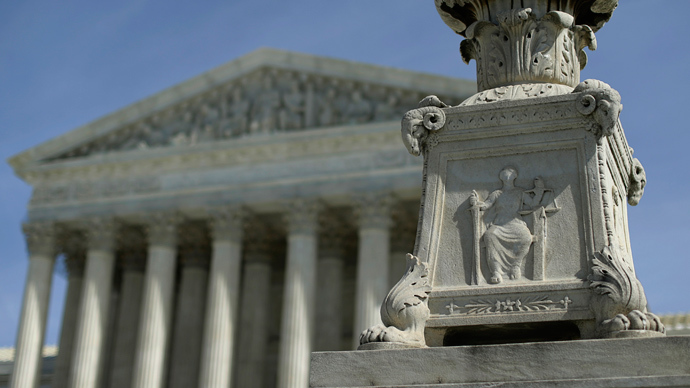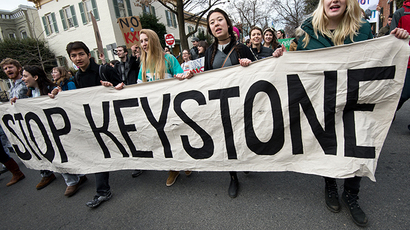Police may stop drivers based only on anonymous tip, rules Supreme Court

Law enforcement officials may now stop US drivers based only on the information gleaned in an anonymous tip phoned in by a caller who dialed 911, the Supreme Court ruled in a tight decision Tuesday.
The high court ruled 5-4 that relying only on a comment from a 911 caller is reasonable because “a 911 call has some features that allow for identifying and tracking callers.” In most cases the justices are split along ideological lines but Tuesday’s decision was enough to split the two most conservative-minded justices, with Justice Clarence Thomas writing the majority opinion and Justice Antonin Scalia leading the dissent.
The case considered a 2008 California incident in which an anonymous 911 caller told the police that a pickup truck had forced her off the road, providing the location, as well as details such as the truck’s make, model, and license plate number. Police soon stopped a vehicle matching the description and reported smelling the odor of marijuana as they approached driver Jose Prado Navarette.
Navarette was arrested because officers found 30 pounds of marijuana in his vehicle, although he argued that the initial stop was unconstitutional because police did not have reasonable suspicion to stop his truck. His legal team asserted that the police could not have determined with any accuracy the identity of the caller or challenged her credibility.
The Supreme Court has long maintained that police may act on anonymous tips, although those tips are required to include enough detail so that officers can formulate a reasonable suspicion of criminal activity, according to NPR. Justice Thomas used this rationale in his opinion, claiming that police may have felt, based on the 911 call, that the truck driver was intoxicated behind the wheel.
“We have firmly rejected the argument that reasonable cause for an investigative stop can only be based on the officer’s personal observation, rather than on information supplied by another person,” Thomas wrote, although the court heard no evidence that the responding officers witnessed Navarette driving recklessly.
Writing for the majority, Thomas said the anonymous caller’s comments contained enough “indicia of reliability” to give police enough reasonable suspicion to halt the truck.
“The officer was therefore justified in proceeding from the premise that the truck has, in fact, caused the caller’s car to be dangerously diverted from the highway,” he went on. “Running another vehicle off the road suggests lane positioning problems, decreased vigilance, impaired judgment, or some combination of those recognized drunk driving cues.”
Justice Scalia, who usually agrees with Thomas, wrote a stinging rebuke of the majority decision in his own dissent.
“The Court’s opinion serves up a freedom-destroying cocktail consisting of two parts patent falsity: (1) that anonymous 911 reports of traffic violations are reliable so long as they correctly identify a car and its location, and (2) that a single instance of careless or reckless driving necessarily supports a reasonable suspicion of drunkenness,” he wrote, as quoted by US News and World Report.
“All the malevolent 911 caller need do is assert a traffic violation, and the targeted car will be stopped, forcibly if necessary, by the police. If the driver turns out not to be drunk (which will almost always be the case), the caller need fear no consequences even if 911 knows his identity.”














